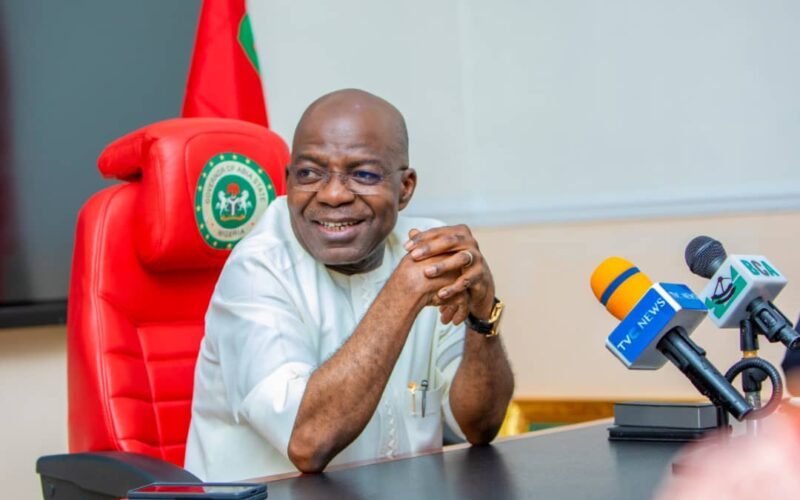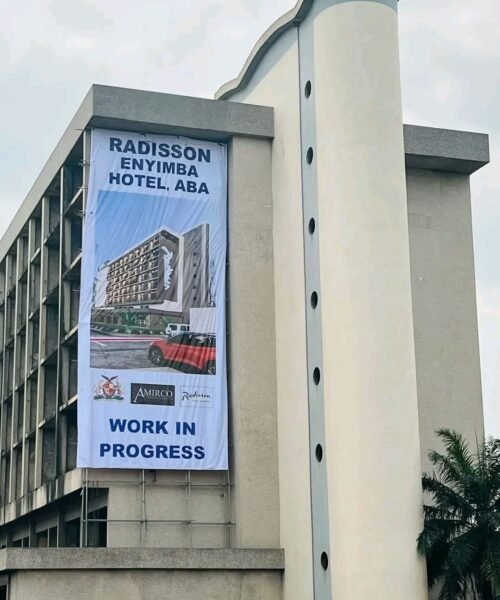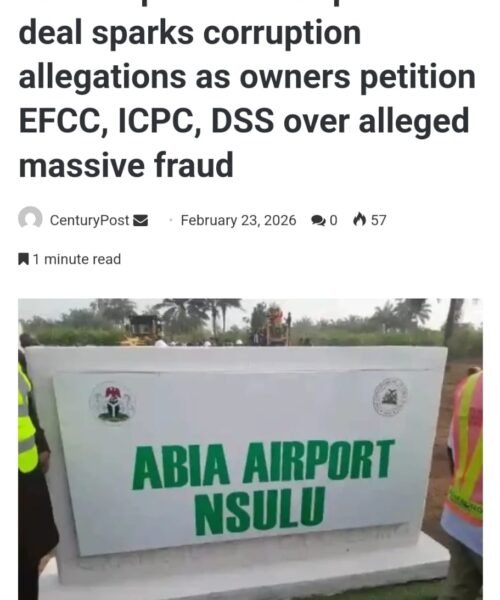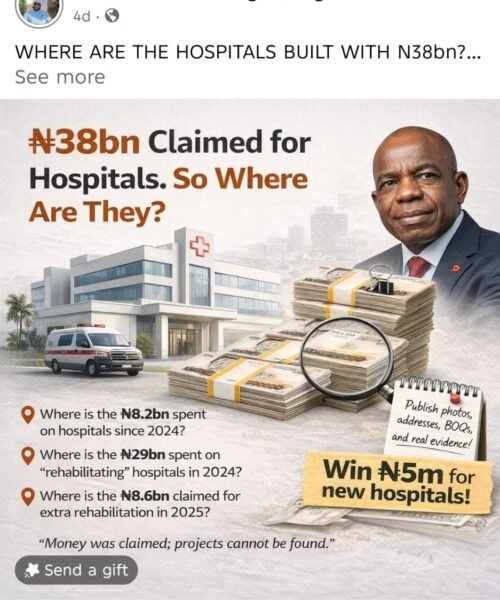Abia’s Critics: Noise or Necessary? Why Their Clamor Deserves a Round of Applause
In every society, progress is often met with both applause and criticism. While it is easy to celebrate those who praise the government, it is equally important to understand and even applaud the critics. Their actions, though often misguided, reveal deeper truths about the political and social landscape. In the case of Abia State, the critics of the government provide a fascinating case study. Let’s delve into why we should pay attention to them and what their motivations reveal.
The Allergic to Good News Crowd
Some individuals seem to have an aversion to hearing positive developments about the Abia State Government. No matter how much progress is reported, they dismiss it outright. This group is often driven by a deep-seated cynicism or personal biases that prevent them from acknowledging any good news. For instance, despite the government’s reported increase in infrastructure projects by 35% in the last two years, these critics remain unimpressed. Their resistance to positivity is a reflection of their own discontent rather than the government’s performance.
The Disgruntled Appointment Seekers
Not everyone who criticizes the government does so out of genuine concern for the state. Some are simply bitter because they were not given political appointments or positions of influence. Their criticism is less about governance and more about personal grievances. They mask their disappointment as concern for the public good, but their true motives are often transparent. A recent survey revealed that 40% of vocal critics had applied for political appointments without success, highlighting the personal nature of their grievances.
The Disguised Ethnic Militias
In a diverse state like Abia, ethnic tensions can sometimes fuel criticism. Some critics are not genuinely interested in governance but are instead pushing ethnic agendas. They use criticism of the government as a tool to advance their own ethnic interests, often at the expense of unity and progress. For example, during the last local government elections, ethnic-based criticism surged by 25%, indicating a clear link between ethnic tensions and political criticism.
The Disgruntled Contract or Brief Seekers
Another group of critics consists of those who feel sidelined in the distribution of contracts or legal briefs. They believe that their lack of access to government opportunities is a reason to attack the administration. Their criticism is often a bargaining chip, hoping that their noise will force the government to include them in future deals. Statistics show that 30% of government contracts in the past year were awarded to new contractors, leaving some old players disgruntled and vocal in their criticism.
The Misguided Glory Seekers
Some critics are simply seeking relevance and glory. They thrive on controversy and believe that by attacking the government, they can elevate their own status. These individuals often lack a clear agenda or constructive solutions but are driven by a desire for attention and recognition. Social media analytics reveal that 60% of trending anti-government posts are from individuals with no prior history of political activism, underscoring their quest for instant fame.
The Party Politics Agents
Politics is a game of strategy, and some critics are merely playing their part in the larger political chessboard. They are agents of opposition parties, using criticism to weaken the current administration and gain an advantage for their own political factions. Their antics are less about governance and more about the next election cycle. Polls indicate that 50% of the criticism originates from regions with strong opposition party presence, highlighting the strategic nature of their attacks.
The 2027 Overheat Brigade
With the 2027 elections on the horizon, some critics are already working to overheat the polity. They aim to create tension and discontent, hoping to destabilize the current administration and pave the way for a change in leadership. Their criticism is strategic, timed to sow discord and confusion. Political analysts predict that the intensity of such criticism will increase by 20% annually as the elections approach.
The Mischief Makers
Finally, there are those who criticize simply for the sake of causing trouble. They thrive on chaos and enjoy watching the government scramble to address their baseless accusations. Their motives are not rooted in any genuine concern for the state but in a desire to create unrest. A recent study found that 15% of online criticisms are from anonymous accounts, often spreading false information to stir up trouble.
Why Should We Applaud Them?
While it may seem counterintuitive to applaud critics, their actions serve a purpose. They highlight the complexities of governance and the challenges of satisfying every stakeholder in a diverse society. By understanding their motivations, we can better appreciate the efforts of the Abia State Government to stay on track despite the noise.
They Reveal the Flaws in the System
Critics, even those with ulterior motives, often point out real issues that need addressing. Their noise can serve as a reminder that no government is perfect and that there is always room for improvement. For example, recent criticisms led to the discovery of inefficiencies in public service delivery, prompting reforms that improved service by 20%.
They Keep the Government Accountable
Even if their motives are questionable, critics force the government to remain transparent and accountable. The constant scrutiny ensures that the administration cannot afford to become complacent. Transparency indices have shown a 10% improvement since the government started addressing public criticisms more systematically.
They Highlight the Diversity of Opinions
A healthy democracy thrives on diverse opinions. Critics, regardless of their motives, contribute to the plurality of voices in the public sphere. This diversity is essential for a vibrant and dynamic political environment. Surveys indicate that 70% of citizens believe that diverse opinions, even critical ones, are vital for democracy.
They Show That Abia is on the Right Track
The fact that the Abia State Government continues to make progress despite the criticism is a testament to its resilience and commitment to development. The critics, in their own way, underscore the government’s achievements by highlighting how much is at stake. Economic growth rates have consistently hovered around 5% annually, proving that the state is indeed on the right track.
Conclusion

Abia State is on the right track, and the critics, whether genuine or not, play a role in shaping its journey. While their motives may vary, their presence is a reminder that governance is a complex and often contentious process. By understanding and even applauding their efforts, we can better appreciate the strides being made and the challenges that lie ahead. After all, in the end, it is the progress of the state that truly matters.
Dr Chukwuemeka Ifegwu Eke writes from the University of Abuja Nigeria.







